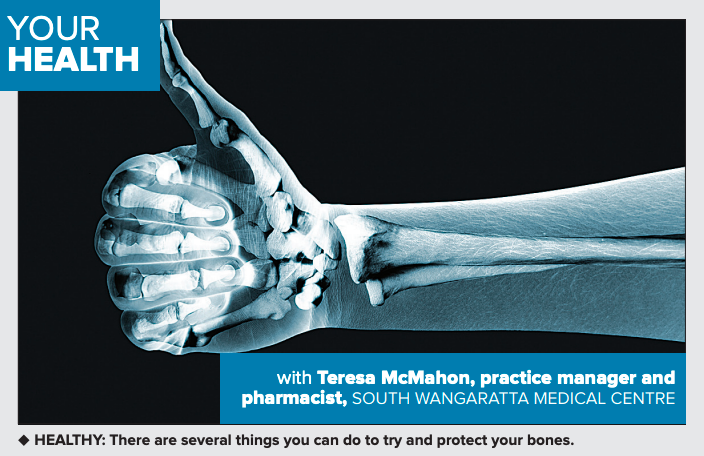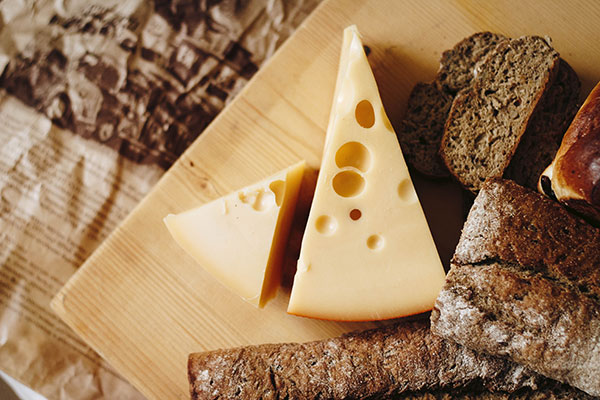WE have 206 bones to keep healthy and strong.
My very wise GP fairly recently broached the topic of healthy bones with me and I thought it was a topic that we definitely need to speak about more often.
Bone health is something that a lot of us take for granted until something goes wrong.
Bones are flexible yet strong for movement and protect vital organs.
Bones grow in childhood, have a growth spurt in adolescence and are constantly rebuilt during adulthood in a process called ‘remodelling’.
When the structure of bone is compromised and becomes weaker and less dense the bone has an increased risk of breaking.
There are over 173,000 broken bones each year due to poor bone health.
Worryingly, over 1 million Australians have osteoporosis.
In those aged 50 years and over, 66 percent have osteoporosis or osteopenia (low bone density).
There are many conditions and some medications which can affect the integrity of
your bones.
Family history, diet and lifestyle factors can also impact on your bone health.
More specifi cally these risk factors include:
- being female;
- having a direct relative who has had an osteoporotic fracture;
- inadequate amounts of dietary calcium;
- low vitamin D levels;
- cigarette smoking;
- alcohol intake of more than two standard drinks per day;
- caffeine intake of more than three cups of coffee or equivalent per day;
- lack of physical activity;
- early menopause (before the age of 45);
- loss of menstrual period if it is associated with reduced production of oestrogen, which is vital for healthy bones (the menstrual cycle can cease following excessive dieting and exercise);
- long-term use of medication such as corticosteroids for rheumatoid arthritis, asthma and other conditions;
- thyroid disease or an overactive thyroid
gland; - rheumatoid arthritis;
- chronic liver and kidney disease;
- some eating disorders; and
- conditions that affect the body’s ability to absorb nutrients, such as Crohn’s disease, coeliac disease and other inflammatory bowel conditions.
There are several things that you can do to try and protect your bones the best you can.
These include eating a healthy and varied diet which includes calcium-rich foods, getting enough vitamin D, avoid smoking, limit alcohol and caffeine and engage in regular weight bearing and strength-training exercise.
However, if you identify with the risk factors above, the best thing you can do is speak to your GP about your bone health who will work with you to keep your bones as strong as possible for as long as possible.


